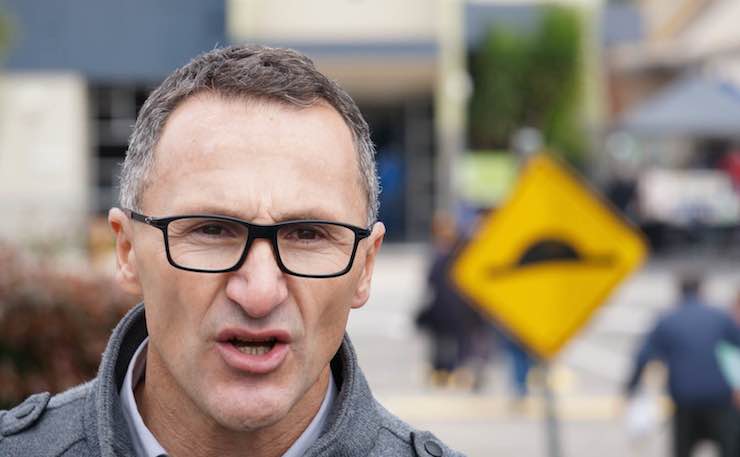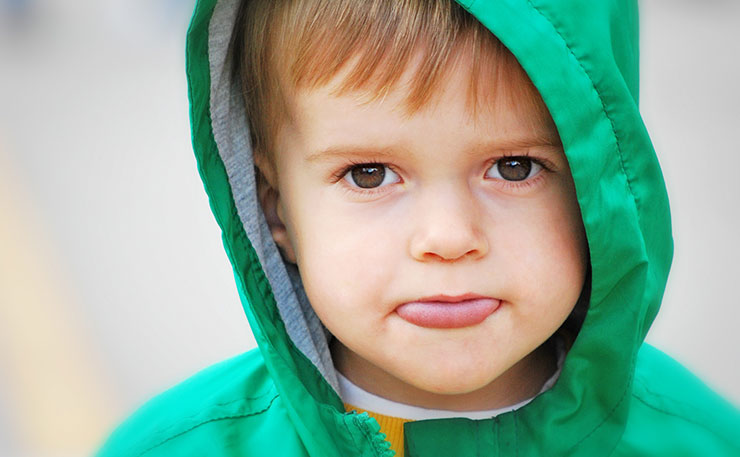Their policy is pretty clear – the Greens support the UN Convention on the Rights Of The Child. But when it comes to the practice, their response is quite a bit more dulled, writes Alan Corbett.
Last July I wrote an article calling on the Australian Greens’ political leadership to publicly state their opposition to the physical punishment of children.
I argued that, while the Greens had advocated for the non-violent resolution of conflict, and have publicly rejected all forms of child abuse, the political leadership were nevertheless unwilling to denounce corporal punishment in the home – a practice which the UN Committee on the Rights of the Child have said is a form of physical violence invariably degrading and harmful to children.
A reasonable person would expect that the Greens, with their strong commitment to principles such as peace and non-violence and social justice, together with their strong policy on combatting domestic violence would, as a matter of course, publicly defend a child’s right not to be assaulted by an adult in their home, under any circumstances.
Sadly, no such statement has been made nor any action taken along these lines. No marches, no banners, no campaigns and to the best of my knowledge, no speeches in the Commonwealth Parliament by any Greens MP or Senator.
Even the 2015 Senate Inquiry and report into Domestic Violence in Australia, which was referred to Committee by the Queensland Greens’ Senator Larissa Waters and in which she served as a substitute member, completely ignored the medical evidence of a robust association between the physical punishment of children and later intimate partner violence, as well as other adverse effects.
All in all, there has been no leadership by the Australian Greens in the area of protecting children from corporal punishment, despite the growing body of international research which has clearly shown that this form of punishment has the potential to damage children and lead to physical abuse.
So what was the Greens’ response to the publication?
To the best of my knowledge, there wasn’t any response on The Greens’ Facebook page nor anywhere else.
In fact, recent correspondence from the Greens’ National Secretary has confirmed their position of not speaking out on the issue.
The Greens’ party in every state and territory were also approached for comment on this issue, but two weeks later not one had replied to my enquiry.
So four months later I have to ask again; what exactly do the Greens stand for?
On the one hand they commend the UN Convention on the Rights of the Child (CRC), but on the other, they choose to ignore its central principle, that is, to act in the best interests of the child.
Indeed it is arguable that, due to their silence, the Greens’ political and organisational leadership have not only condoned the use of physical punishment, but have also denied children their right to physical integrity.
The Greens can’t plead ignorance for their inactivity. In my previous article I pointed out that the Greens’ leader Richard Di Natale, as a former medical practitioner, would surely have been aware of the medical literature that warns against the use of corporal punishment.

As nothing has changed in the last three months, perhaps Di Natale needs further prompting. Here is another study that recommends a ban on corporal punishment as a means of reducing the incidence of child abuse and child homicide. A ban which, had it been in place, might have saved the life of Mason Lee.
The law to do with reasonable chastisement is not a Commonwealth responsibility, but by doing nothing to curb this form of violence against children, the Greens have cynically decided that the political risk to the party from speaking out against corporal punishment, far outweighs any benefits to children across Australia.
Why would the Greens try to ignore this issue and hide their heads in the sand?
In my previous article I referred to polls that have consistently shown that Australian adults don’t want to be told by Government that they cannot hit their children. Indeed, many adult Australians still consider their children to be inferior to themselves and honestly believe they have the right to treat their children as they see fit.
Earlier this year, for example, a survey of 1002 adults carried out by the Valuing Children Initiative on attitudes to children found that 70 per cent of Australian adults agreed or strongly agreed with the statement, “Until they reach the age of 18 years children belong to their parents or carers”.
While the word “belong” could also have meant, “are responsible for”, the contextual evidence would suggest that the notion of ownership was the predominant factor in the surveyed response.
So that is one possible explanation for the Greens’ silence against the corporal punishment of children.
The other, as stated in my former article, is that they may open themselves to political attack.
Despite their lack of action over the years, there has been one notable and positive exception to the Australian Greens’ politically expedient and cowardly silence. This took place a decade ago at a state level.
In 2006, and in the run-up to the Victorian state election, a newspaper article quoted a Victorian Greens’ candidate stating that the party opposed all corporal and unreasonable punishment in the home, and that the purposeful infliction of pain was unacceptable.
The candidate, who subsequently was not elected, also stated in the same article that there needed to be a cultural change in our attitudes towards smacking children.
It is interesting to note that the Victorian Greens’ current Child Protection policy, clearly states that Government has the responsibility to ensure that the rights of children are upheld according to the CRC.
This means that the Victorian Greens should support a government ban on the corporal punishment of children, or alternatively they could propose such a ban. It’s my guess, however, that the Victorian Greens haven’t yet appreciated the political significance and practical implications of their own policy.
The Greens need to be true to their principles and speak out against the corporal punishment of children, just as their colleagues in New Zealand, Canada, Ireland and the UK have done.
In so doing, these Greens parties and political movements have acted in a manner consistent with point 6.9 of the Global Greens Charter, which opposes “… any violation of the physical integrity of the individual by torture, punishment or any other practices including traditional and religious mutilation”.
A statement by the Greens opposing the physical punishment of children would also abide by their Charter and Constitution.
So the Australian Greens have a choice to make. Will they continue to deliberately avoid the issue or will they act to protect the safety and well being of our children?
Remaining silent is no longer an option.
Donate To New Matilda
New Matilda is a small, independent media outlet. We survive through reader contributions, and never losing a lawsuit. If you got something from this article, giving something back helps us to continue speaking truth to power. Every little bit counts.






